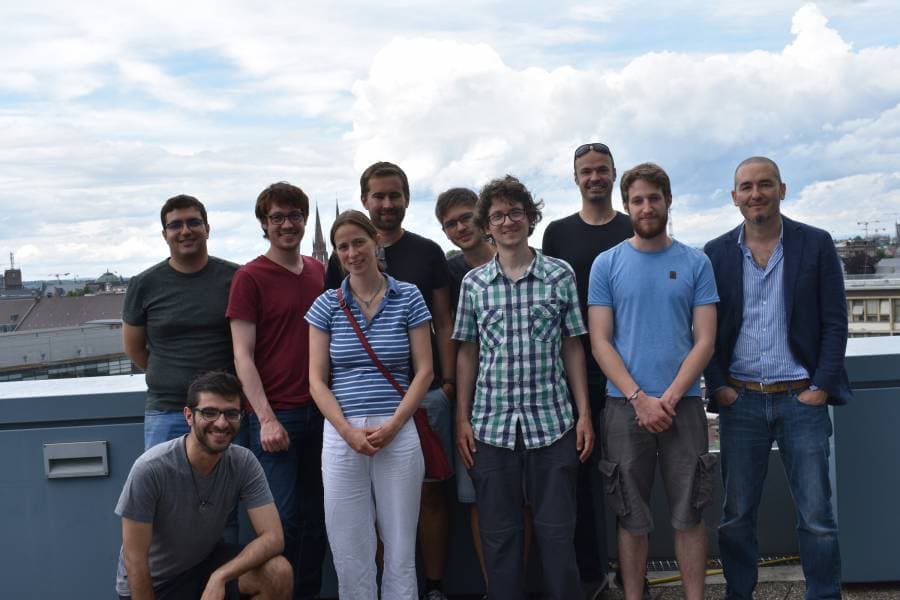
Guido Pupillo is Distinguished Full Professor (PRCE) at the University of Strasbourg, Director of the “Laboratory of Quantum Physics” at the Institut de Science et d'Ingénierie Supramoléculaires (ISIS) and of the new “European Center for Quantum Sciences - CESQ” of the University of Strasbourg and CNRS, where he is involved in the development of teaching and research programs in quantum science and technology. He obtained his Master in Physics at the University of Bologna in 2001 and a PhD in Physics in 2005 at the University of Maryland for research conducted at the National Institute of Standards and Technology (with Dr. Carl J. Williams). Until 2011 he was scientist and then senior scientist at the University of Innsbruck and the Austrian Academy of Sciences, where he obtained his Habilitiation in Theoretical Physics (with Prof. P. Zoller). In 2012 he became full professor at the University of Strasbourg (FR). He is Scientific Coordinator of the MSCA COFUND “QUSTEC – Quantum Science and Technologies at the European Campus” and Coordinator of the MSCA ITN “MOQS – Molecular Quantum Simulations”. He is recipient of several awards, including the 2012 ERC Starting Grant and the 2013 Guy Ourisson Prize. He is fellow of the Global Young Academy, the Young Academia Europaea. Since 2019 he is fellow of the University of Strasbourg Institute for Advanced Study (USIAS) and Senior Fellow of the Institut Universitaire de France (IUF). His research interests are in atomic, molecular, and optical physics, quantum simulations and quantum computing.
Keywords: Quantum simulation, quantum computing, many-body physics, quantum optics
I am a permanent CNRS researcher at CESQ/ISIS and joined the team in Strasbourg in 2016. After my undergraduate studies at the Technical University in Munich (TUM) I moved to Innsbruck (Austria) where I continued with a PhD program in the group of P. Zoller, supervised by A. J. Daley. During my PhD years I moved to the University of Pittsburgh (USA) as a visiting research scholar until graduation in 2012. I stayed in the US, working as a post-doc at JILA (Boulder, USA) in the group of A. M. Rey.
My main research interest is the theory of quantum many-body non-equilibrium physics. I'm interested in far-from-equilibrium dynamics in many-body models, which I study by utilizing numerical methods and quantum optics tools [e.g.: matrix product states (MPS)/tensor networks, truncated Wigner approximations (DTWA), quantum trajectories, adiabatic elimination, ...]. Applications of my work are in the fields of (ultra-)cold atom physics and cavity-coupled molecules.
Keywords: Quantum many-body physics, Non-equilibrium, Numerical methods, Cold atoms, Cavity-coupled Molecules
Keywords: Cavity-QED, Plasmonics, Superconductivity, Transport, Numerical methods (Non-Equilibrium Green's Functions).
Keywords: Computational Physics, Many-body Physics, Cold Gases
I graduated from Università Cattolica del Sacro Cuore (Brescia, Italy) in 2016 focusing my studies on the interplay of cooperativity and thermal noise, from light-harvesting complexes to quantum devices. In 2021 I obtained a double Ph. D. degree in Physics from Università Cattolica del Sacro Cuore (Brescia, Italy) and University of Notre Dame (Indiana, USA) within the International Doctoral Program in Science. My research covered cooperative effects in quantum systems, with a particular focus on superradiance in molecular aggregates and solid state super-lattices, but also on long-range interactions and how they affect energy transport. In April 2021 I joined the Quantum Matter Theory group as a post-doc. I am interested in quantum systems strongly coupled to optical cavities, the interplay of cooperativity with disorder and noise and their implications on quantum transport, also in the context of many body physics. Keywords: Quantum Optics, Cavity QED, Many-body Physics, Cooperativity, Quantum Transport.
Keywords: Quantum Optics, Cavity QED, Many-body Physics, Cooperativity, Quantum Transport.
Keywords: Quantum Optics, Cavity QED, Many-body Physics.
Curriculum Vitae
Keywords: Circuit QED, Floquet theory, quantum Simulation, Two-Qubit Gate, Variational Quantum Algorithm, Quantum Information Processing
Keywords: Cavity QED, Quantum Gates, Rydberg Atoms



